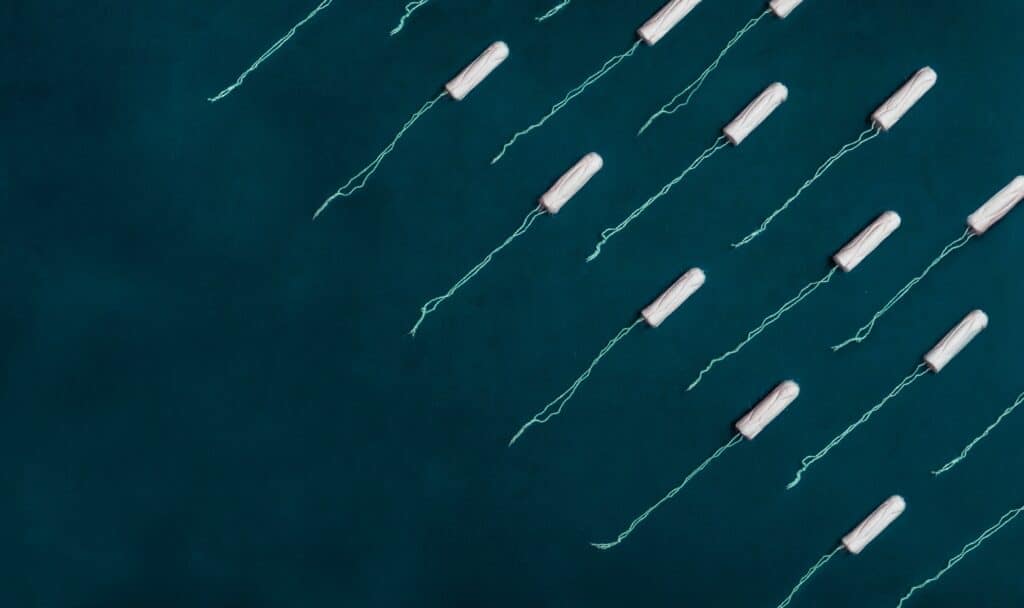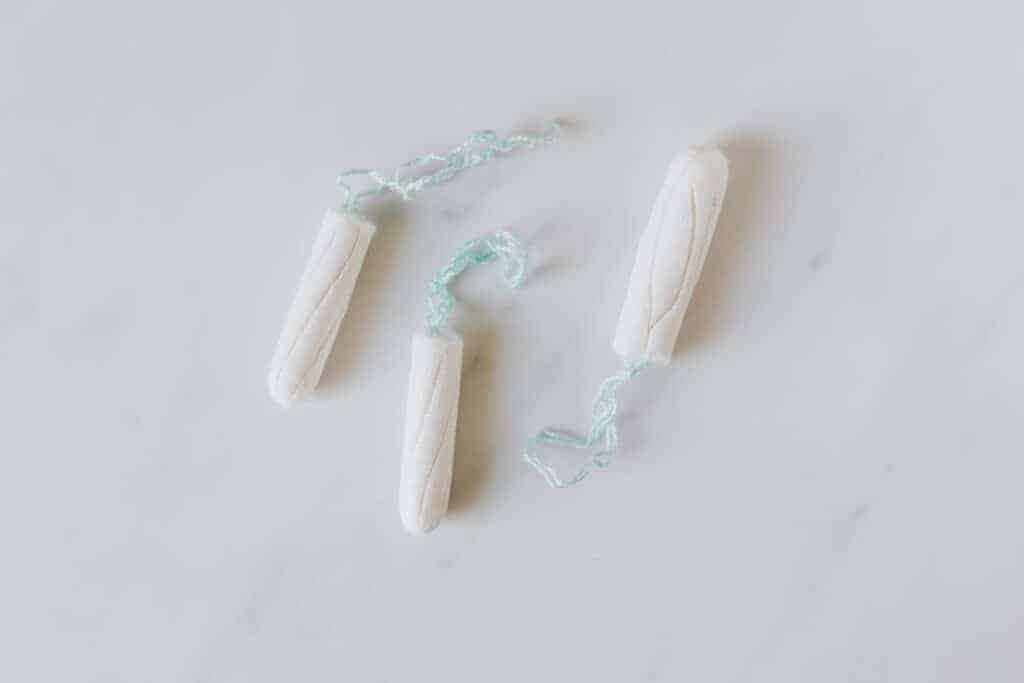Are tampons toxic? What are the ingredients of sanitary napkins? Do tampons even contain chlorine, glyphosate or pesticides? Every now and then we read corresponding reports in the social media, less often in the reputable daily press. And then manufacturers also advertise the "panty liner without additives" ... Wait a minute, additives? What is actually contained in the various monthly hygiene products?


New: Due to the great interest we have created a new article on this topic. On the pageIngredients and pollutants in sanitary towels, tampons and pads we have summarized everything important for you. In this new article we go into detail about each ingredient. You will also learn how to avoid dangerous pollutants and what possible alternatives are.
Short and crisp: we don't know. There is no labeling obligation for tampons, sanitary towels and panty liners. According to the manufacturer, most products are made from a mixture of cellulose, plastics and cotton. The manufacturers do not indicate what exactly is contained in the cotton. So it is possible that the tampons contain pesticides that got into them through the non-organically grown cotton. Or maybe not. Only independent laboratory tests can determine whether tampons contain toxins. So for now all you can do is believe the manufacturers.
Are sanitary towels toxic and tampons chemically treated? Monthly hygiene is, despite all serenity, still a sensitive topic. Nevertheless, there are some studies on it.
For example, conventional sanitary towels and tampons were examined more closely in Argentina already in 2015. According tomedia reports on the study 85% of the tested products contained glyphosate. The problem is: during our online research, we were actually unable to find that study. On the other hand, many media companies apparently report on the article, whose neutrality is at least questionable - such as Russia Today. That doesn't necessarily make it easier to estimate the results. If the results are correct, it is problematic. Because you wear tampons in your body, in direct contact with the more sensitive mucous membrane. Glyphosate, like dioxins (which may be contained in the cotton wool in tampons), is considered to be carcinogenic.
Fortunately, there are also more reliable sources from Germany. In 2009 and 2017, Öko-Test worked with BfR to clear up the issue - and gave the all-clear signal. In one case, Ökotest found organohalogen compounds, otherwise all of the tampons examined were free of harmful substances. Presumably, different products are sold by other manufacturers in Argentina than in Germany. Even so, every rumor contains a grain of truth, and that is also true in the case of tampons. They pose a risk if, for example, they are worn for too long.
The products sold in Germany are initially harmless, as the Federal Institute for Risk Assessment has also determined. The ingredients of tampons pose no danger. Even so, a tampon can become toxic. You have probably heard or read about what is known as Toxic Shock Syndrome. If you wear a tampon for too long, it can create toxins. The so-called toxins spread very quickly in the body. You experience flu-like symptoms, and you may develop a rash. Diarrhea, vomiting and poor circulation quickly develop. Toxic shock syndrome can not only develop when wearing tampons, but with any wound that has not been treated. And it's very, very rare.

There is no better or worse in this case. Both products have their advantages and disadvantages. Sanitary towels are worn outside in contact with the body, so there is less contact with the sensitive mucous membranes. Nevertheless, the sanitary towels (such as panty liners) may also contain questionable substances. And they can promote the development of fungal infections. Because the protective plastic film, which prevents liquids from penetrating into the underwear, creates a warm, humid environment. Fungi love that - if you add a tampon, which dries out the vaginal mucosa due to its moisture-absorbing properties, the naturally existing pathogens can multiply well. Sanitary napkins and panty liners with or without additives are therefore no better or worse than tampons, but just different.
How did women do it a hundred years ago, when tampons were not yet popular? Right - they used fabric hygiene products. Sanitary towels and panty liners made from organically grown cotton or even silk have been on the market again for several years; most drugstores carry these products. Natural sponges are an alternative to tampons, and menstrual cups are another alternative. These products can be reused over and over again, provided that they are hygienically kept and cleaned up. Not only do they contribute to a healthier environment "down there", they also help to avoid waste. Disposable products made from completely plant-based organically grown materials are also available on the market from suppliers such as Natracare, The Female Company, Mia and others. You have to decide for yourself whether you trust these manufacturers more with regard to the declared harmless ingredients than with conventional products.
You can find many Questions & Answers in our Frequently Asked Questions (FAQ).
Unsure about the right size? See our size chart!
Click one of the items below to get started.